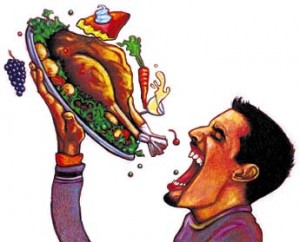"An apple a day keeps the doctor away"
How many times have we heard this phrase in our lifetimes? Do apples really deserve this much praise, or is it just a way for parents to get their children to eat fruit? Well the answer is simple: apples are good for you, and (red) delicious.
Since this is the first ingredient highlight, I'm not really sure what people want to hear, so I'm just going to have a few different sections - let me know what you like or don't like so I can adjust for future ingredient highlights.
First, a little bit of background. There are over 7,500 different varieties of apples grown worldwide, about a third of which are grown in the United States. Charred apples have been found in prehistoric caves in Switzerland, and the apple was the favorite fruit of the ancient Greeks and Romans.
Apples have a number of health benefits, even though they are lower in vitamin C than most other fruits and vegetables. Some of the most notable benefits are:
- Prevention of dementia
- Increase in bone density
- Decreased levels of bad cholesterol (LDL)
- Helps with weight loss
- Prevention of breast, colon, liver, lung, and prostate cancers
Apples are a great source of fiber (about 5g per apple). In fact, two-thirds of the fiber and lots of antioxidants are found in the peel. So DON'T peel your apples. However, I would personally suggest that you buy certified organic apples (really you should buy organic for any fruit or vegetable where you eat the skin). Why buy organic? Well, in the case of apples, many apples have commercial grade wax applied after harvesting and cleaning. Did you really think your apples were that shiny all on their own? Not only is eating wax a tad disgusting, but the wax coating actually traps pesticides used when growing the apples. In fact, apples are one of the top twelve pesticide containing foods. So I'll reiterate: buy organic.
 |
| Wax scraped from a commercially sold apple |
Peak Season: September to May
Tip: Apples ripen six to ten times faster at room temperature than if they are refrigerated
Apple Gadgets: (Yes, I know I really love my gadgets)




